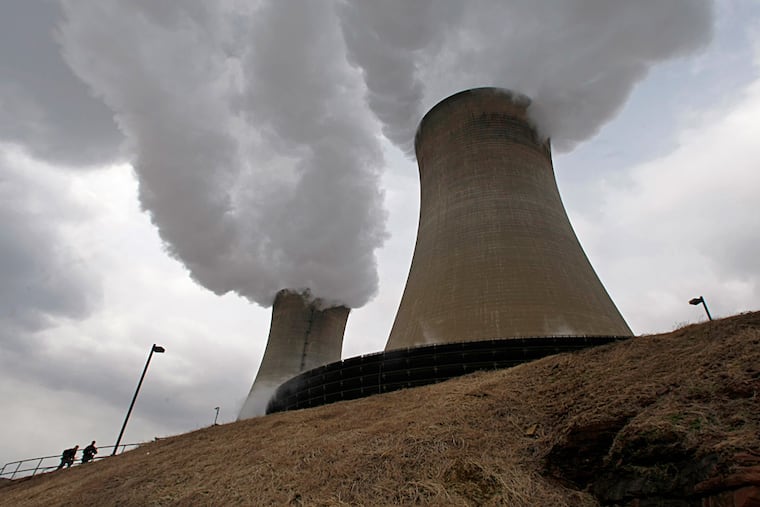Peco parent Exelon plans to separate into two firms: ‘Our customers expect us to continuously innovate’
The Chicago company plans to spin off its power-generation business from the company’s six utilities, including Peco, Atlantic City Electric and Delmarva Power.

Exelon Corp. announced Wednesday that it plans to spin off its power-generation business from the company’s six utilities, including Peco, Atlantic City Electric and Delmarva Power.
The Chicago company said the separation of the business units, a strategy previously adopted by PPL Corp. in Allentown and other utilities, is aimed at streamlining operations and increasing shareholder value.
» READ MORE: ‘End of an era:’ After 45 years, Three Mile Island nuclear power plant is closed
The spin-off will be completed in the first quarter of next year, Exelon said. Existing Exelon shareholders will receive shares in the new entity.
“This is a very good strategic move for us,” Exelon chief executive officer Christopher Crane said in a conference call.
The spin-off would finalize moves that Peco and other utilities began in the last century, when many states including Pennsylvania and New Jersey required utilities to cleave off their power-generation businesses into competitive divisions. The utilities became strictly distribution companies that manage the wires and networks to deliver power generated by competitive companies.
The Exelon separation affects a number of operating companies and employees in the Philadelphia area, including the three utilities that distribute power to retail customers. The spin-off company will contains two key units. One, Constellation Energy, based in Baltimore, markets energy. The other, Exelon Generation, based in Kennett Square, operates power plants including the nation’s largest fleet of nuclear reactors.
The corporate separation will have no immediate impact on the local companies, said Paul Adams, an Exelon spokesperson. The name of the new company and where it will be based will be announced later. “Until the separation is complete, we will continue to operate as one company with no changes to our headquarters or operating footprint,” Adams said in an email.
Utilities produce most of their revenue from regulated rates, so the returns are more predictable than for power generators, which are vulnerable to market conditions. Exelon’s distribution utilities deliver electricity and natural gas to more than 10 million customers in five states and the District of Columbia. Its Peco utility, which is based in Philadelphia and serves the city and surrounding counties, is the largest electric utility in Pennsylvania.
Exelon’s three other distribution companies are based in Chicago, Baltimore and Washington.
» READ MORE: Exelon launches $20 million fund for start-ups to mitigate climate change
But the power generation businesses have faced fierce competitive pressures, especially Exelon’s nuclear fleet, which in recent years closed reactors at Three Mile Island in Pennsylvania and Oyster Creek in New Jersey. Exelon also operates the Limerick and Peach Bottom nuclear plants in Pennsylvania, and owns 43% of the Salem Generating Station in New Jersey.
All told, Exelon owns more than 31 gigawatts of generation capacity consisting of nuclear, wind, solar, natural gas and hydroelectric plants. The company says it produces about 11% of the nation’s carbon-free energy.
Exelon on Wednesday underscored the unpredictable nature of the competitive generation business when it announced that it expected to report $560 million to $710 million in losses from its three Texas-based power plants, which experienced periodic outages this month during the severe cold weather that crippled the state’s electric grid.
Exelon’s shares closed Wednesday at $40.19 in Nasdaq trading, down $0.61 (1.50%).
Some activist investors have estimated that Exelon shares would be worth about $60 — 50% more than current price — if the company separated its businesses. Exelon said in November that it was conducting a review of its operations and was evaluating such a move.
“Our industry is changing at a rapid pace, and our customers expect us to continuously innovate to stay ahead of growing demand for clean energy, evolving business conditions and changing technology,” Crane said in the statement.